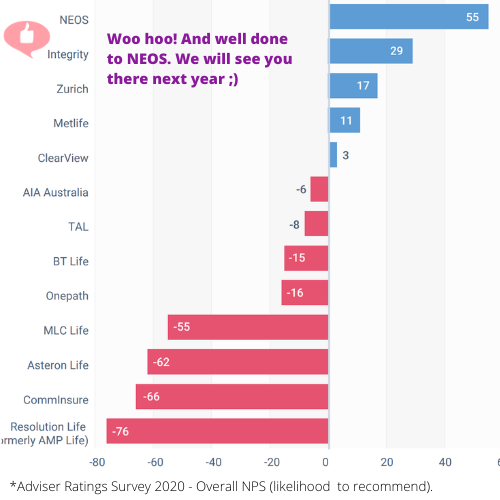
HIV and blood borne disease, what you need to know.
HIV and blood borne disease, what you need to know.
Advances in medicine have meant that people living with HIV (PLHIV) have a life expectancy that is approaching the same as the general population1. In fact, PLHIV who are taking and adhering to antiretroviral therapy (ART) cannot sexually transmit the virus to others2.
Furthermore, with increased education and the introduction of the drug Pre-Exposure Prophylaxis (PrEP), HIV in Australia continues to decline3. Despite the facts, there is still a lot of disproportionate fear in the community which often creates stigma against those with HIV. This can lead to further health issues for PLHIV as well as a reluctance to seek treatment, which further complicates eradicating the transmission of the disease4. Similarly, Hep C also elicits a response that hasn’t kept pace with medical treatments and advancements5.
Below are some common questions we get from Advisers and their clients with Integrity’s position based on the most current research and thinking.
Q: If a medical practitioner needs to be tested for HIV or Hep C, would they be eligible for Income Insurance benefits, as they would be unable to work for up to 6 months, right?
A: The window period for HIV is now 18-45 days with some very, very rare cases taking up to 6 months to show up, so it’s very unlikely they would need to be away from work for an extended period of time. Additionally, the current guidelines6 don’t require a medical practitioner to cease practicing while they are waiting on test results unless there is a very large chance that they know they were exposed to someone who is a carrier for an infectious virus.
For Hep C, a special kind of blood test called a nucleic acid test (NAT) that detects HCV RNA (also called a PCR test) can tell if a person is infected within 1–2 weeks of exposure7.
Q: What if the medical practitioner was advised in an official capacity (by their employer or official Association) that they’re not permitted to work, would we pay a monthly benefit then?
A: Generally, yes. If a medical practitioner is compelled not to work in an official capacity, then we would consider paying a monthly Income Insurance benefit.
Q: If they do end up having HIV or HEP C, doesn’t this mean they won’t be able to work? And therefore, would we pay Income Insurance benefits?
A: Contracting HIV or Hep C in Australia in 2021 is not a death sentence. Medical practitioners living with HIV or Hep C are permitted to continue performing the duties of their usual occupation as long as they are under the care of another doctor and following the prescribed treatment and guidelines. Additionally, due to privacy legislation associations such as Royal Australasian College of Surgeons (RACS) and Australian Health Practitioners Regulation Agency (AHPRA) are not even allowed to ask if a person is HIV/Hep positive as all. Medical practitioners are required to follow universal precautions to prevent the transmission of HIV (regardless of their status).
HIV or AIDS?
“HIV (human immunodeficiency virus) is a virus that attacks cells that help the body fight infection, making a person more vulnerable to other infections and diseases. It is spread by contact with certain bodily fluids of a person with HIV, most commonly during unprotected sex (sex without a condom or HIV medicine to prevent or treat HIV), or through sharing injection drug equipment. If left untreated, HIV can lead to the disease AIDS (acquired immunodeficiency syndrome). The human body can’t get rid of HIV and no effective HIV cure exists. So, once you have HIV, you have it for life. However, by taking HIV medicine (called antiretroviral therapy or ART), people with HIV can live long and healthy lives and prevent transmitting HIV to their sexual partners. In addition, there are effective methods to prevent getting HIV through sex or drug use, including pre-exposure prophylaxis (PrEP) and post-exposure prophylaxis (PEP). First identified in 1981, HIV is the cause of one of humanity’s deadliest and most persistent epidemics.”
“AIDS is the late stage of HIV infection that occurs when the body’s immune system is badly damaged because of the virus. In [Australia], most people with HIV do not develop AIDS because taking HIV medicine every day as prescribed stops the progression of the disease. A person with HIV is considered to have progressed to AIDS when: the number of their CD4 cells falls below 200 cells per cubic millimeter of blood (200 cells/mm3). (In someone with a healthy immune system, CD4 counts are between 500 and 1,600 cells/mm3.) OR they develop one or more opportunistic infections regardless of their CD4 count. Without HIV medicine, people with AIDS typically survive about 3 years. Once someone has a dangerous opportunistic illness, life expectancy without treatment falls to about 1 year. HIV medicine can still help people at this stage of HIV infection, and it can even be lifesaving. But people who start ART soon after they get HIV experience more benefits—that’s why HIV testing is so important.” 8
References.
- https://www.nih.gov/news-events/news-releases/science-clear-hiv-undetectable-equals-untransmittable
- https://medicalxpress.com/news/2020-11-hiv-australia-declined-years.html
- https://napwha.org.au/wp-content/uploads/2019/04/HIV-and-Ageing-in-Australia-New-Frontier-April19.pdf
- https://www.acon.org.au/wp-content/uploads/2020/11/HIV-Stigma-Paper_v8.pdf
- https://www.healthline.com/health/hepatitis-c/can-it-be-cured
- https://www1.health.gov.au/internet/main/publishing.nsf/Content/cda-cdna-bloodborne.htm
- https://www.cdc.gov/hepatitis/hcv/cfaq.htm
https://www.hiv.gov/hiv-basics/overview/about-hiv-and-aids/what-are-hiv-and-aids
Integrity Life
From the newsroom














